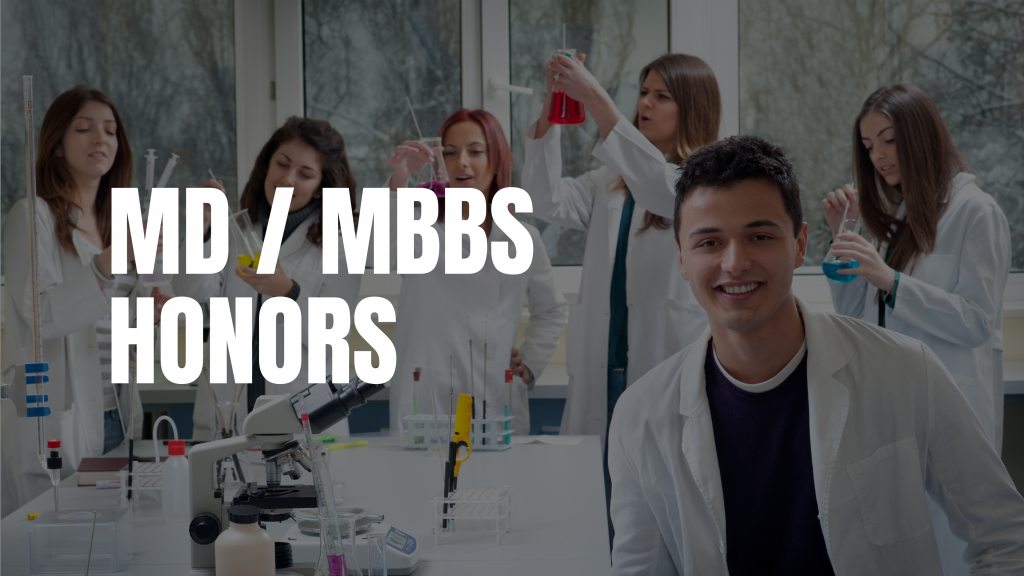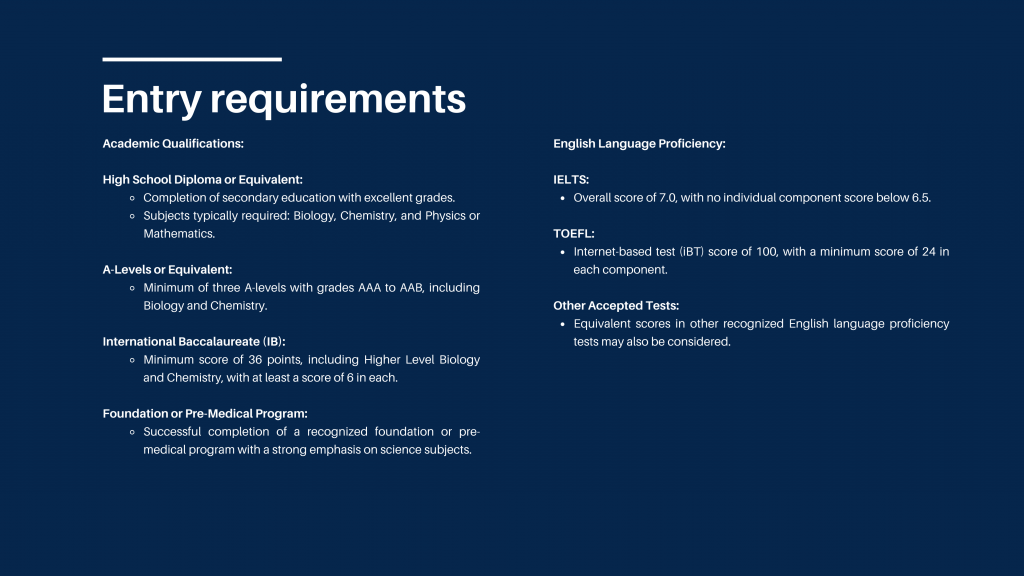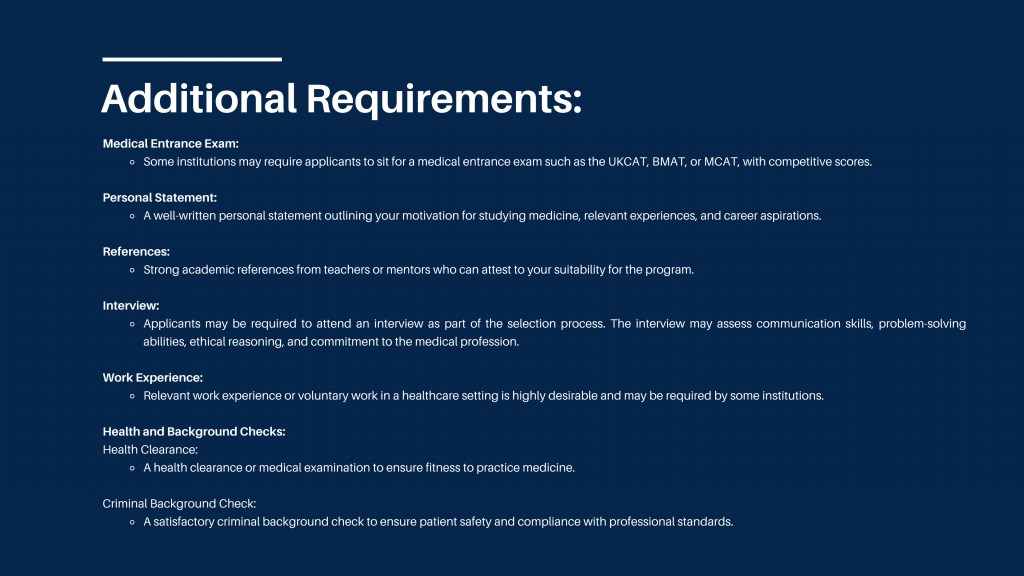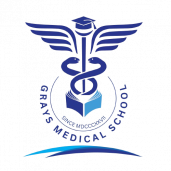
Course Overview
Medicine is concerned with training knowledgeable, caring, competent, and skillful professionals who understand
health and disease. Our curriculum is designed to provide general medical education and a foundation for your later
career specialization. At the Grays Medical School, the course is five years and full-time.
A Practical Approach
The Grays Medical School course is an integrated hands-on program. We develop your clinical skills from the outset,
and you meet actual patients early in the course.
We introduce you to clinical research methods and allow you to study topics of your choice during the course.
You will develop communication skills, information handling, reflective practice, decision-making,
and attitudes required for medical training.

Year 1 to 5: Host Country
Year 1 to 5:
The first two years of the MBBS program are delivered through case-based learning and early clinical experience in the host country. Teaching is
Integrated, with relevant topics covered in each case. For example, for a case on heart disease, the relevant anatomy, physiology,
pharmacology, and social science related to heart disease will be taught together in an integrated fashion. In these cases, you will learn the underlying
biology of diseases and apply this knowledge to a clinical context.
The teaching consists of a combination of lectures, seminars, clinical skills, simulation sessions, anatomy, and clinical reasoning sessions, which will
prepare you for the subsequent years.
In the first semester of Year 3, you’ll engage in a 12-week clinical rotation focused on the fundamentals of clinical practice within the host country. This
Placements follow this in medicine, surgery, and acute care, where you’ll work as an integral part of a clinical team.
The second semester includes further clinical placements in mental health, child and young person’s health, reproductive health, and primary care.
Year 3 culminates with a four-week module on Clinical Decision Making 1.
Throughout both semesters of Year 4 at the host country, you’ll participate in supervised, longitudinal, integrated clinical placements in Medical
Surgical specialties, as well as primary care, are referred to as Advanced Clinical Experience. Here, you’ll follow a panel of patients throughout their
medical care journey. Semester 2 includes an 8-week block in Acute & Critical Care.
You’ll also undergo a four-week block focused on clinical decision-making, covering all clinical sciences with a particular emphasis on investigative medicine.
Year 4 concludes with an 8-week Student Selected Component, allowing you to undertake a supervised clinical placement in a topic of your choice.
In the first semester of Year 5 at the host country, you’ll continue to enhance your skills and knowledge through clinical rotations in mental health,
child and young people’s health, women’s health, primary care, and Good Medical Practice.
Following assessments in Semester 2, the 8-week Elective provides an opportunity to experience medicine almost anywhere in the world. For many, this
is a highlight of their medical studies.
Year 5 concludes with further assistantships in medicine, surgery, and orthopedics, where you’ll be attached to a clinical team in the hospital. Here,
you’ll play the role of a ‘junior’ houseman, gaining practical experience for your future career
Students-selected Components
The student-selected component (SSC) in Year 5 develops your information retrieval, analysis, and critical appraisal skills. This allows you to study topics of your choosing. It may be possible for several SSC topics to be undertaken in your home country other than the host country.
Intercalated study
Highly motivated and able students enrolled in the five-year MBBS program have the opportunity to step aside from their medical degree for one year
to study for an additional degree.
This opportunity may be beautiful if you wish to explore an area in greater depth and gain experience in research. The options include (but
are not limited to):
-> Joining the third year of any of our BSc degrees in Biomedical and Biomolecular Sciences (typically after successful completion of Year 2 of MBBS);
or
-> Undertaking a Master of Research or MPhil qualification (generally after completing either Year 3 or Year 4 of MBBS).
Following the successful completion of the intercalated year of study, you will be awarded either a BSc Honours degree or a Master’s degree as
appropriate, and return to the host country to conclude the remainder of your MBBS program.
Other opportunities
During Year 4, there is an opportunity to spend a semester at a partner campus worldwide. During Year 5, you undertake an eight-week elective
placement. This allows you to study medicine at home or abroad and gain hands-on experience in a different healthcare system.




